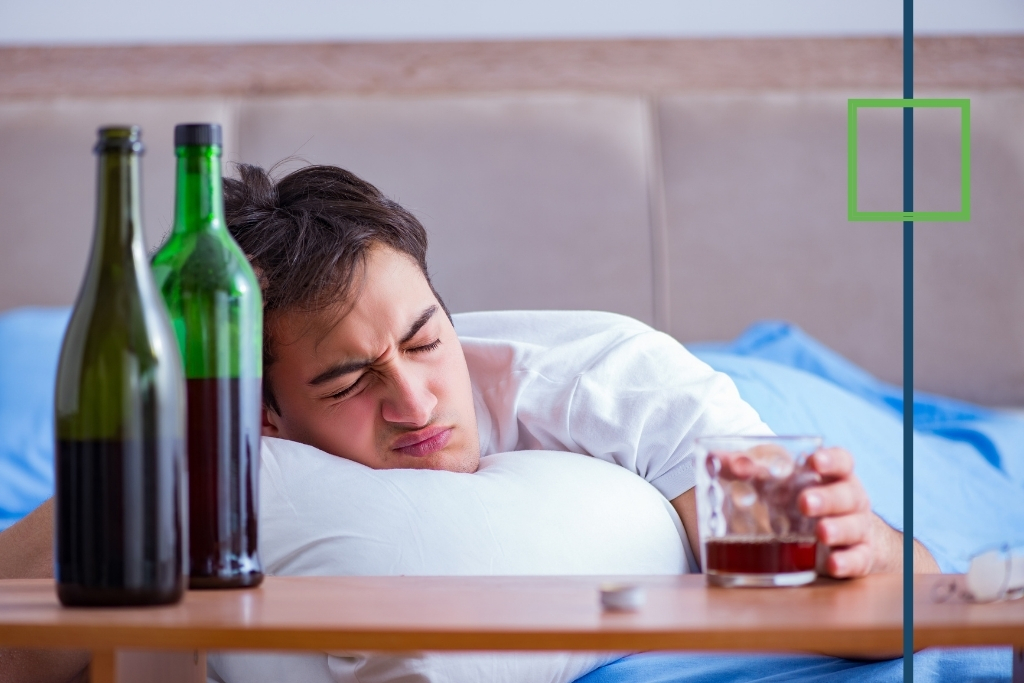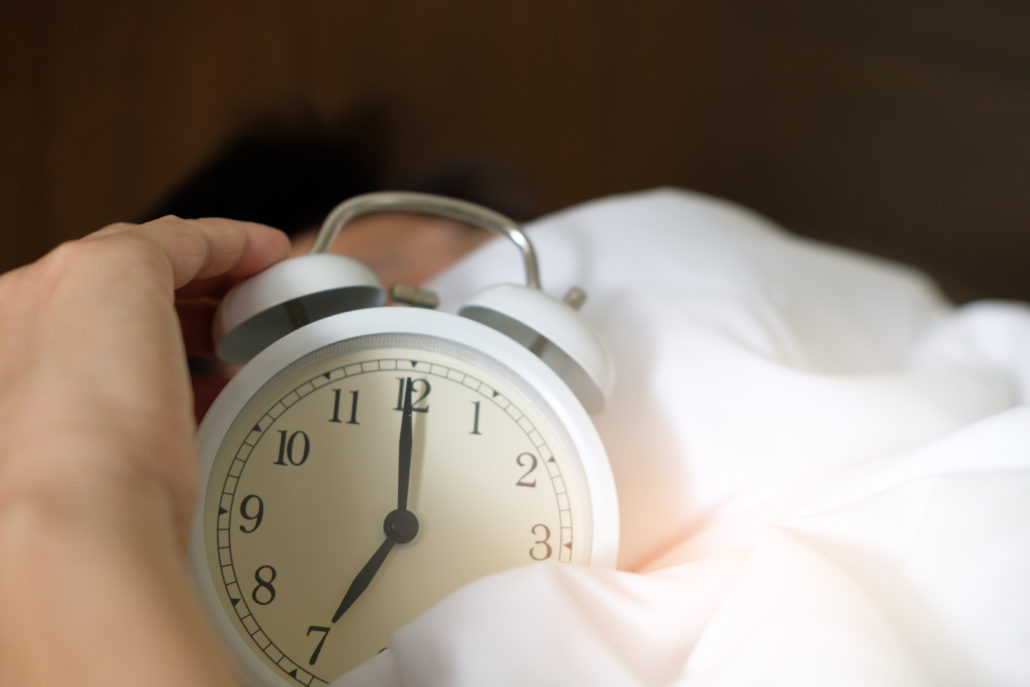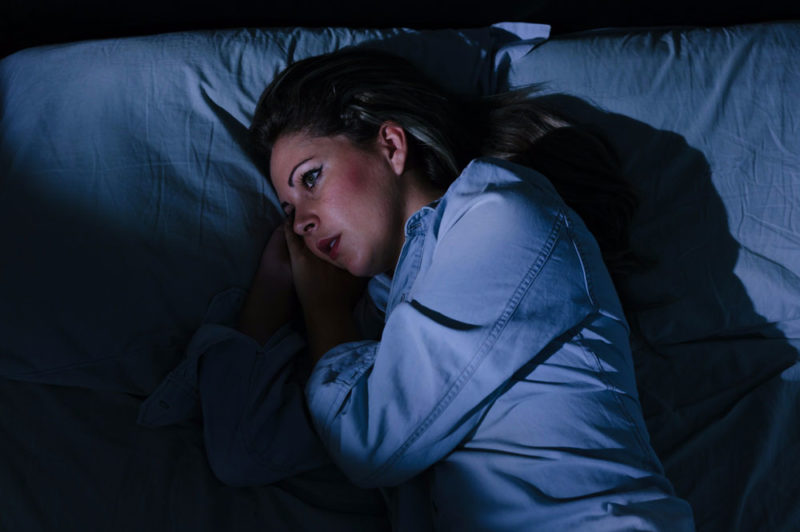Alcohol and Insomnia Problems
The average grown-up sleeps 7.5 to 8 hours every night. Although the function of sleep is still under research, much evidence shows that lack of sleep can have profound effects, including impaired breathing, increased risk of depressive disorders, and heart disease. In addition, extreme daytime sleepiness resulting from sleep disruption is linked with memory deficits, impaired occupational and social function, and car accidents.
Drug or alcohol abuse, as well as sleep disorders such as insomnia, are commonly related. Alcohol abuse and other drug addiction, especially cocaine and crystal meth, may cause insomnia disorder in most people. Attempts to treat insomnia with addictive sleep aids such as Ambien or sedating substances such as alcohol or benzodiazepines have contributed to sleeping disorders among the elderly.
Considering that alcohol is a depressant, it may seem surprising, yet alcohol is known to interfere with fundamental aspects of sleep quality. Alcohol consumption can induce sleep disorders by disrupting the duration and sequence of sleep states and altering total sleep time and the time required to fall asleep (i.e., sleep latency). This article explores the health effects, which include the appearance effects of alcohol consumption on sleep patterns, the possible health effects of alcohol consumption combined with disturbed sleep, and the risk for relapse in those with alcoholism who fail to recover standard sleep patterns. Between 35 and 70% of individuals who use alcohol have insomnia.
One reason for poor sleep after drinking alcohol is that the production of adenosine (a chemical in the brain that acts as a sleep-inducer) increases while drinking, allowing you to go to sleep quickly. However, this chemical quickly subsides, making you more likely to wake up throughout the night. Drinking before bed is also connected with more slow-wave sleep patterns called delta activity. However, alpha activity, which indicates wakefulness with eyes closed and often precedes sleep, is turned on simultaneously. Experiencing these two brain wave activities is thought to inhibit quality rest. Also, alcohol inhibits REM sleep, which is often considered the most mentally restorative sleep phase.


Get Your Life Back
Find Hope & Recovery. Get Safe Comfortable Detox, Addiction Rehab & Mental Health Dual Diagnosis High-Quality Care at the We Level Up Treatment Centers Network.
Hotline (877) 378-4154Causes of Insomnia
Insomnia is a common sleep disorder that can make it hard to fall asleep, hard to stay asleep or cause you to wake up too early and not be able to get back to sleep. As a result, you may still feel tired when you wake up. Insomnia can drain your energy level, mood, health, work performance, and quality of life.
Many adults experience short-term (acute) insomnia, which lasts for days or weeks. It’s usually the result of stress or a traumatic event. But some people have long-term (chronic) insomnia that lasts for a month or more. Insomnia may be the primary problem, or it may be associated with other medical conditions or medications.
Chronic insomnia is usually a result of stress, life events, or habits that disrupt sleep. Treating the underlying cause can resolve insomnia, but sometimes it can last for years.
Common causes of chronic insomnia include:
Stress
- Concerns about work, school, health, finances or family can keep your mind active at night, making it difficult to sleep. In addition, stressful life events or trauma — such as the death or illness of a loved one, divorce, or a job loss — also may lead to insomnia.
Travel or work schedule
- Your circadian rhythms act as an internal clock, guiding such things as your sleep-wake cycle, metabolism and body temperature. Disrupting your body’s circadian rhythms can lead to insomnia. Causes include jet lag from traveling across multiple time zones, working a late or early shift, or frequently changing shifts.
Poor sleep habits
- Poor sleep habits include an irregular bedtime schedule, naps, stimulating activities before bed, an uncomfortable sleep environment, and using your bed for work, eating, or watching TV. In addition, computers, TVs, video games, smartphones, or other screens just before bed can interfere with your sleep cycle.
Overeating late in the evening
- Having a light snack before bedtime is OK, but overeating may cause you to feel physically uncomfortable while lying down. Many people also experience heartburn, a backflow of acid and food from the stomach into the esophagus after eating, which may keep you awake.
Chronic insomnia may also be associated with medical conditions or the use of certain drugs. Treating the medical condition may help improve sleep, but insomnia may persist after the medical condition improves.
Additional common causes of insomnia include:
Mental health disorders
- Anxiety disorders, such as post-traumatic stress disorder, may disrupt your sleep. Awakening too early can be a sign of depression. Insomnia often occurs with other mental health disorders as well.
Medications
- Many prescription drugs can interfere with sleep, such as certain antidepressants and medications for asthma or blood pressure. In addition, many over-the-counter medications — such as some pain medications, allergy and cold medications, and weight-loss products — contain caffeine and other stimulants that can disrupt sleep.
Medical conditions
- Examples of conditions linked with insomnia include chronic pain, cancer, diabetes, heart disease, asthma, gastroesophageal reflux disease (GERD), overactive thyroid, Parkinson’s disease and Alzheimer’s disease.
Sleep-related disorders
- Sleep apnea causes you to stop breathing periodically throughout the night, interrupting your sleep. Restless legs syndrome causes unpleasant sensations in your legs and an almost irresistible desire to move them, which may prevent you from falling asleep. Alcohol and insomnia can increase risks for sleep apnea.

Caffeine, nicotine, and alcohol
- Coffee, tea, cola and other caffeinated drinks are stimulants. Drinking them late afternoon or evening can keep you from falling asleep at night. Nicotine in tobacco products is another stimulant that can interfere with sleep. Alcohol may help you fall asleep, but it prevents deeper stages of sleep and often causes awakening in the middle of the night.
Get Help. Get Better. Get Your Life Back.
Searching for Accredited Drug & Alcohol Rehab Centers Near You? Or Mental Health Support?
Even if you have failed previously, relapsed, or are in a difficult crisis, we stand ready to support you. Our trusted behavioral health specialists will not give up on you. Call us when you feel ready or want someone to speak to about therapy alternatives to change your life. Even if we cannot assist you, we will lead you wherever you can get support. There is no obligation. Call our hotline today.
FREE Addiction Hotline – Call 24/7How Alcohol Affects People With Insomnia?
When people notice they’ve developed a sleep disorder, their first reaction is usually to have a drink. As a result, 20% of adults in the United States will use some form of alcohol to help them fall asleep. Alcohol may help many fall asleep occasionally. However, the consumption of alcohol, even a single serving, will make it more difficult for an individual to reach deep sleep. Also known as REM sleep. Without deep sleep, our body and mind are unable to do what’s necessary to prepare for the next day. Clearly, alcohol and insomnia can feed off each other. Awareness and a smart approach to sleeping well can be the key to better sleep habits.
The major issue is that people may not feel the negative effects from the use of alcohol and insomnia that follows at first. They can try it a few times and think their sleeping problems are cured. Eventually, however, they notice that they are tired when they wake up. The solution seems simple; they have another beer, another glass of wine, another shot. But, the more they take, the more they feel they need, and soon, they’ve built a dependency on alcohol in order to feel relaxed.
How Does Alcohol Affect Sleep?
It is often believed that alcohol promotes sleep, but the research as a whole shows that although alcohol is a sedative and may initially help people to fall asleep more quickly, overall it disturbs the sleep cycle, exacerbates certain sleep problems, and consequently creates negative repercussions during waking periods.
Studies looking at the effects of alcohol on sleep have found that alcohol reduces the time required to fall asleep (sleep onset latency), increases the amount of deep sleep, and reduces the amount of REM sleep. In addition, prolonged drinking can lead to tolerance to some of the effects of alcohol. For example, research has found that within three consecutive days of drinking, people develop a tolerance to the sedative and sleep-stage effects of alcohol.
Falling Asleep
In general, alcohol helps people fall asleep more quickly regardless of the amount of alcohol consumed. Researchers have also found that the sedative effect of alcohol lasts through the first part of the night. In fact, people who have consumed alcohol wake up less frequently and for shorter periods of time during the first hours of sleep.
However, while the alcohol generally helps people fall asleep and not wake up during the first hours of sleep, it has a disruptive effect on the rest of the night. Which is marked by more fragmented sleep and frequent waking. These effects are due to the metabolism of alcohol during the second part of the night.
Non-REM Sleep
During the first part of the night, alcohol increases the amount of non-REM sleep, regardless of the amount of alcohol consumed. Over the whole night, however, the impact of alcohol on the amount of non-REM sleep is directly related to the amount of alcohol consumed. No clear trend has been observed among those who drink lightly, but among those consuming a moderate amount of alcohol; researchers observe a trend towards increased non-REM sleep. Larger amounts of alcohol significantly increase the amount of non-REM sleep.
REM Sleep
There is a well-established link between alcohol and reduced REM sleep. When people drink lightly or moderately, studies show no change in the amount of REM sleep during the first part of the night. By contrast, people who drink heavily experience a significant reduction in REM sleep during the same period.
When the whole night is considered, it appears that both moderate and heavy drinking reduces the total percentage of REM sleep. This effect is not observed among people who drink lightly (less than two drinks), thus researchers have concluded that a reduction in REM sleep is related to the amount of alcohol consumed.

Comfortable Facilities & Amenities
High-Quality Addiction & Mental Health Rehabilitation Treatment
Rehab Centers TourRenowned Addiction Centers. Serene Private Facilities. Inpatient rehab programs vary.
Addiction Helpline (877) 378-4154Proven recovery success experience, backed by a Team w/ History of:
15+
Years of Unified Experience
100s
5-Star Reviews Across Our Centers
10K
Recovery Success Stories Across Our Network
- Low Patient to Therapist Ratio
- Onsite Medical Detox Center
- Comprehensive Dual-Diagnosis Treatment
- Complimentary Family & Alumni Programs
- Coaching, Recovery & Personal Development Events
Alcohol and Sleep Deprivation
Drinking alcohol can worsen certain sleep disorders, notably obstructive sleep apnea and insomnia.
Obstructive Sleep Apnea
Obstructive sleep apnea is a sleep disorder characterized by frequent pauses in breathing during sleep. These pauses, or apneas, usually last 10 to 30 seconds and may occur several times during the night. Often, nighttime obstruction occurs when the soft tissue at the back of the throat collapses and closes the airway. Relaxed throat muscles, a narrow respiratory tract, a large tongue, or excess fatty tissue in the throat can also block the airway.
Alcohol disrupts breathing during sleep by relaxing the throat muscles. Alcohol can also reduce the brain’s ability to wake and detect a lack of oxygen in the body, and this can lead to longer and more frequent breathing pauses. As such, it is recommended that people with sleep apnea either avoid drinking alcohol altogether or at least cut back on their drinking.
Alcohol and Insomnia
Insomnia may include the following symptoms: difficulty falling asleep, waking frequently during the night, difficulty falling asleep again after waking, waking too early, and daytime sleepiness. People with insomnia sometimes use alcohol to self-medicate. Studies have found that approximately 30% of people with ongoing insomnia have used alcohol within the past year as a sleep aid. Insomnia and alcohol abuse are strongly linked; estimates of insomnia in people with alcohol dependency range from 36% to 67%.
Because alcohol consumption can result in frequent waking, changes to the sleep stages, and a reduction in the amount of REM sleep, it is likely that alcohol exacerbates insomnia and its use as a sleep aid is not recommended.
World-class, Accredited, 5-Star Reviewed, Effective Addiction & Mental Health Programs. Complete Behavioral Health Inpatient Rehab, Detox plus Co-occuring Disorders Therapy.
CALL (877) 378-4154End the Addiction Pain. End the Emotional Rollercoaster. Get Your Life Back. Start Drug, Alcohol & Dual Diagnosis Mental Health Treatment Now. Get Free No-obligation Guidance by Substance Abuse Specialists Who Understand Addiction & Mental Health Recovery & Know How to Help.
Alcohol and Insomnia as a Co-occurring Disorder
The majority of common mental illnesses, including depression, anxiety, and PTSD, are related to insomnia disorder, and alcohol and drug abuse disorders are not left out. However, the correlation may be complicated and bidirectional: alcohol and drug use can lead to insomnia, but sleep problems can also increase the risk of substance abuse and addiction.
Addiction experts are paying more attention to subjects surrounding sleep and considering ways to deal with sleep disruption in opioid use in turn insomnia disorder prevention and treatment as they understand the significance of this once-overlooked aspect. Most types of substance abuse severely disrupt the brain’s sleep-regulating systems, affecting latency, sleep duration, and quality of sleep.
During withdrawal, drug users often experience insomnia, whereby drug cravings are fueled, and relapse is possible. Furthermore, the importance of sleep in consolidating new memories cannot be overstated, poor sleep quality may make it more difficult to learn new coping and self-control skills that are needed for recovery.
Treatment for Alcohol and Insomnia Problems
Treating a co-occurring Alcohol and Insomnia disorder without treating someone’s alcohol dependence, and vice versa can mean setting up a potential relapse before treatment has truly started. Rarely is it the desires of alcohol that drive those in recovery to relapse? Rather, the symptoms of alcohol withdrawal take a physical and mental toll on the person quitting which pushes them back. Insomnia is a very treatable disorder and taking the time to treat it can mean the difference between recovery and relapse.
The presence of both substance abuse and Alcohol and Insomnia addiction disorder can be clear. For Alcohol and Insomnia, Dual Diagnosis is generally recommended. In this approach, both Alcohol and Insomnia disorders are treated aggressively and concurrently. If you or someone you care about is struggling with alcohol and insomnia, call us today. We Level Up New Jersey addiction treatment center can provide proper evidence-based therapy. Above all, recovering from a co-occurring disorder like Alcohol and Insomnia problems does not need to be overwhelming or burdensome.

Experience Transformative Recovery at the We Level Up Treatment Center.
See our authentic success stories. Get inspired. Get the help you deserve.



Start a New Life
Begin with a free call to an addiction & behavioral health treatment advisor. Learn more about our dual-diagnosis programs. The We Level Up treatment center network delivers various recovery programs at each treatment facility. Call to learn more.
- Personalized Care
- Caring Accountable Staff
- Comfortable Amenities
- Licensed & Accredited
- Renowned w/ 5-Star Reviews
